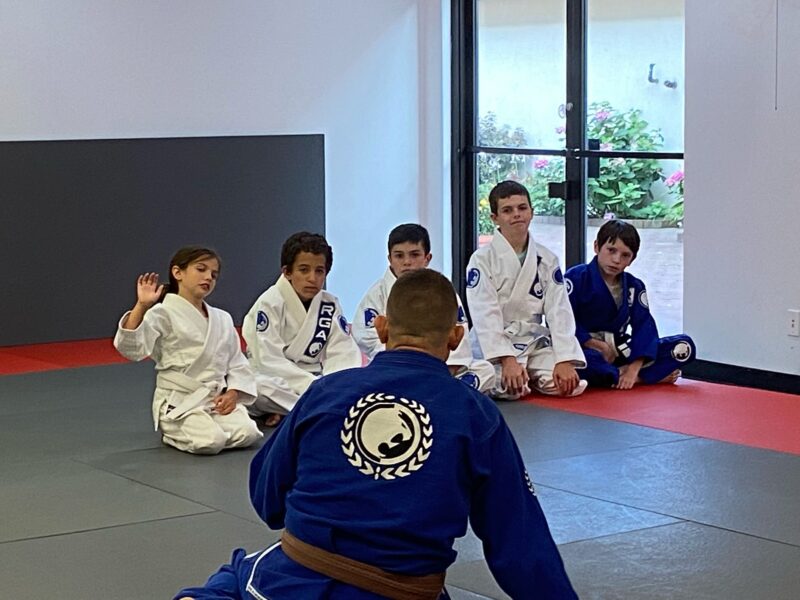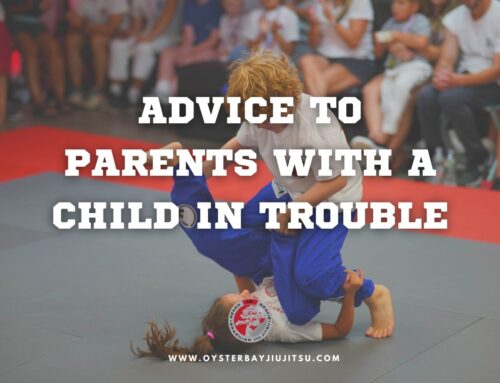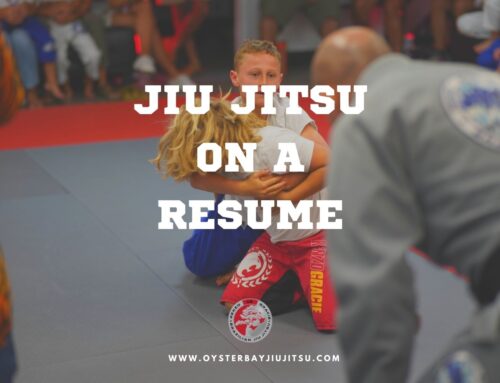
Brazilian Jiu Jitsu will provide many benefits when it comes to teaching your kids lessons that last for life: making friends, being more active, and having healthy habits. However, parents may have questions like “Is Brazilian Jiu Jitsu safe for my children?”
We will give you all the answers that we can summarize as a big YES! It is fun. It is engaging for kids. Plus, it is one of the safest sports that your child can enjoy!
Our young students not only learn ways to defend themselves from a possible attack, but they also learn to look deeper for their skills. And once they discover their hidden strengths, they willingly learn to make use of them appropriately and effectively . In addition to the physical training and litheness, our students gain various skills that will add up to their health, growth, and development.
1.Develop self-discipline
If a child learns self-discipline early in life, success will follow in adult life. Why? Because practice ultimately clears the path to success. So, we claim that Brazilian Jiu Jitsu is a fun way to learn it.
Anyone who has achieved success in some field knows that repetition is the door. And self-discipline is the key to that door. Since practicing Brazilian Jiu Jitsu is fun and exciting for young students, repetition becomes a habit.
BJJ rewards the efforts. When they see that their efforts lead to achievements, children develop an inner understanding that repetition brings success. And this is a life-long skill that will never get dull.
Not like school, not like homework, but in an environment where their efforts are appreciated. So, our young students learn to develop their self-discipline and to practice it in a fun way.

2. Coordination and Body Awareness
Brazilian Jiu Jitsu teaches techniques that consist of small body movements and details. While performing these techniques, a child has to develop fine motor skills in addition to understanding base and balance.
Briefly, executing a technique requires the child to develop powerful neuromuscular connections, so body coordination and balance increase. This solid base helps them in other sports and activities later in life.
3.Friendship
Making friends and feeling that they are part of a community is essential to Brazilian Jiu Jitsu training. Yes, they will fight each other on the mat but they will also be aware of the fact that they share the love for BJJ. And as Jiu Jitsu at heart instills confidence while facing the unknown, children often act with confidence and welcome new students more willingly. Friendship at its best!
4.Learn self-defence
Nowadays, bullying is a common issue in children’s social lives. The children who have more physical force use it on those who are physically weaker. Brazilian Jiu Jitsu creates a balance in these kinds of situations. Physically strong children pour their energy into the art of BJJ, while physically weaker children learn how to defend themselves and control their opponents. So, this is a win-win situation!
By the way, please take note that BJJ teaches children that physical violence should be always the last option.
5.Respect
Brazilian Jiu Jitsu classes are open to everyone who wants to practice this art. So, we have students from all walks of life. It is a known fact that if a child only communicates with those who share a similar socio-cultural background, he or she may often develop biases and may disrespect other individuals who are not from his or her social circle. So, it is a wonderful life-long experience for children to meet other kids from different backgrounds, welcome them sincerely and develop a feeling of respect.
6. Grow physical and mental strength
Physical and mental resilience is one of the necessary characteristics in all stages of life to achieve success. The earlier children develop their physical and mental strength, the better they will benefit for the rest of their lives.
Jiu Jitsu creates an environment where children can develop their problem-solving skills and supports mental strength. During BJJ practices, when they internalize the idea that discomforts such as fatigue and sweating bring them better performance, their capacity to accept life in all its aspects will definitely increase.
7.Fitness and the “Jiu Jitsu Lifestyle”
Jiu Jitsu Lifestyle is closely related to being healthy and maintaining health for as long as possible. While children enjoy this physical activity they love, they also learn from their teachers about healthy living. Your child may lose weight, his or her night sleep may be regulated as their excessive energy is discharged in a healthy way and may start to prefer healthier foods. Since they will learn that the better they take good care of themselves, the more their physical and mental strength will increase. Therefore, the Jiu Jitsu Lifestyle is a valuable life-long teaching for your child.
In short, Brazilian Jiu Jitsu is one of the safest sports for children to choose even at very young ages. The knowledge and experiences they gain in parallel with training will prepare them for life. They also have a lot of fun!
Share This Blog, Choose Your Platform!
2 Comments
Comments are closed.



Is it ok for a child at the age of 4/5 or 12 to practice Brazilian jiu-jitsu? Are they ready? Is it dangerous for them? What will happen if theydo not enjoy competing with each
Jiu jitsu is great for kids of all ages provided they can focus and behave in a group setting. We train with 4 year olds, but it depends on maturity levels especially as class sizes increase and the teacher can’t be distracted by one student.
Jiu jitsu does not require competition. Of course, competitions are available, but only for those that seek it out. Jiu jitsu is mostly about personal development and empowerment. Jiu jitsu is really a personal journey that takes place in a group setting. A good jiu jitsu academy provides an environment where all participants can be comfortable with the intensity of the training. If you want the environment to be chilI then be chill if you want to go hard you find partners that want to go hard. Most skill development occurs in a playful setting so the majority of time in a good academy is playful. Nobody is required to participate in intense training unless they wish to. I hope that helps answer your question.